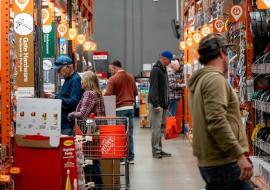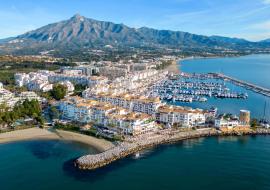Recession Hurting Cruise Ship Builders


The cruise industry is rebounding, but not for the companies who build the increasingly elaborate ships.
Executives from the major European shipyards say they’re not getting enough orders to keep busy and profitable. Though cruise bookings and prices are up, a flood of new ships is crowding the market, and operators have shown little willingness to buy more ships.
Only one new order was placed in 2009, and only four so far in 2010. That’s down from 21 in 2006, before the economic downturn began in December 2007.
If things don’t improve, shipbuilding officials and observers said at an industry conference this week, the yards could lose key skilled workers, suppliers and subcontractors — if they can stay afloat at all. And that means trouble when operators do finally want new ships, with ever-increasing amenities like skating rinks, bowling alleys and climbing walls.
Fincantieri is one of just three companies in the world that dominate the specialty niche of cruise ship-building. Antonini warned that if new orders don’t pick up soon, cruise ships will become more expensive to build and less efficiently made.
Fincantieri is the only of the three major builders with work on the books past 2012 — and they didn’t have it until Carnival ordered two new ships last month. That’s an uncomfortable prospect in an industry where a single order requires years of labor and planning, plus more than 10,000-gross tons of steel and other material.
The other major builders are privately owned Meyer Werft GmbH, based in Papenburg, Germany, and STX Europe AS, a unit of South Korean conglomerate STX Corp. that operates cruise ship yards in France and Finland.
The head of a European ship brokerage says the builders — which also make other types of ships — have become too dependent on the cruise industry, which offered steadily enticing growth of 7 percent a year. It’s hard for the builders to adapt in downturns, and the trend toward bigger vessels means fewer new ships will be needed, said Jean-Bernard Raoust, president of Barry Rogliano Salles.
A boost for the shipyards could come from the European Union, which is expected to start ordering a fleet of new, environmentally friendly ferries, the builders say. Existing vessels are aging, particularly in Mediterranean areas like Greece and Italy.
Meyer Werft spokesman Peter Hackmann said the company isn’t ready to panic. They’re working on seven big cruise ships for three different clients, plus two gas tankers, he said.














